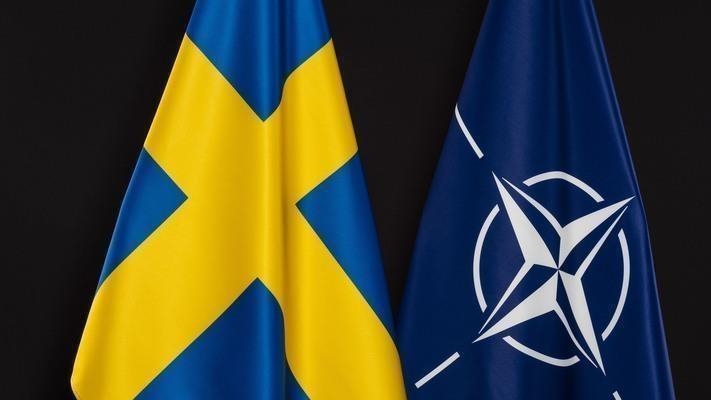WARSAW
Although Finland and Sweden want to walk the path to NATO membership together due to the rising danger of war and security concerns on their borders, Sweden sacrifices its membership hopes to extremists by spectating anti-Türkiye provocations and hate crimes.
Here is how official applications of Stockholm and Finland to NATO began on May 18 last year and how they proceed.
Finland and Sweden — willing to be part of the NATO security umbrella to avoid possible conflicts amid the ongoing Russia-Ukraine war that began on Feb. 24, 2022 — decided to take steps together and made their application in Brussels.
However, Türkiye opposed NATO membership of both countries due to the support given to terrorist organizations PKK/YPG/PYD and the Fetullah Terrorist Organization (FETO). Ankara said it would like to see concrete and permanent steps taken on issues such as preventing the activities of terrorist organizations that threaten Turkish citizens and Türkiye’s security, extradition of people wanted or convicted for terrorism, and lifting restrictions on the export of defense industry products.
President Recep Tayyip Erdogan said these two countries, especially Sweden, directly support the PKK — which Türkiye has been fighting for years — grant political asylum to its members, and provide financial aid. Erdogan emphasized that these attitudes must change for Ankara’s approval.
On the commitment of the two countries to respond positively to Türkiye’s expectations, Türkiye, Finland, and Sweden signed a triple memorandum at the NATO Madrid Summit on June 28, 2022. Also, a permanent joint mechanism was established in this context.
However, during the process, anti-Türkiye provocations organized by terrorist organizations in Sweden and the overlooking of the burning of the Quran made it questionable how well this country fulfilled its commitments.
After the recent provocations in the country, Swedish Prime Minister Ulf Kristersson said “provocateurs tried to prevent Sweden’s membership,” but the incident, tolerated in the name of freedom of expression, damaged the NATO membership process of the country.
“We may respond differently to Finland if necessary. Sweden would be shocked when we respond differently to Finland. But Finland should not make the same mistake,” Erdogan said on Sunday.
Those remarks also brought up the question of whether these two countries would separate their joint path leading to NATO.
1st fracture: FETO fugitive Kenes
After the triple memorandum was signed in Madrid, the membership process of the two Scandinavian countries was expected to progress rapidly, but the Swedish judicial authorities’ refusal to allow the extradition of FETO fugitive Bulent Kenes on Dec. 19 slowed the momentum in the negotiations.
Turkish Foreign Minister Mevlut Cavusoglu on Dec. 22 said Sweden’s refusal to allow the extradition of Kenes was a “very negative development.”
Insulting Türkiye, Erdogan
The provocation that interrupted Sweden’s NATO membership process and came to the fore in the last period is that terror supporters in early July gathered in front of the historical City Hall in the capital Stockholm, hung a figure of Erdogan in effigy by the feet on a pole in front of the building, and shared video footage of the moment on social media.
Footage posted later on a social media account affiliated with the terror group showed that threats targeting Türkiye and Erdogan were made with Turkish subtitles.
In the face of this provocation, Speaker of the Grand National Assembly of Türkiye Mustafa Sentop canceled the official visit of Swedish Parliament Speaker Andreas Norlen, which was planned to be made to Türkiye on Jan 17.
Burning of Quran
The latest incident in Sweden, which maintains its optimistic approach to the membership process, but does not say “stop” to terrorist supporters and provocative acts within the country, was the burning of the Quran, Muslim holy book.
Rasmus Paludan, the leader of the Danish far-right party Stram Kurs (Hard Line), has drawn global condemnation after torching copies of Islam’s holy book, the Quran, outside a mosque in Copenhagen and the Turkish Embassy in Stockholm this month.
Erdogan said on Jan. 23: “Those who caused such a disgrace in front of our embassy should not expect any benevolence from us regarding their NATO membership applications.”
While the Swedish authorities argued that they did not approve of the action, but that there is freedom of expression in the country, Türkiye continued to emphasize that such an insult to a sanctuary is not just against Muslims, but is a hate crime.
The result of the provocations was the postponement of the tripartite mechanism meeting on NATO membership.
Responding to questions on the subject, the Finnish police announced that the burning of holy books such as the Quran in public places will not be allowed, and that this will be considered a “punishable crime.”
Swedish-free membership option
Contrary to what happened in Sweden, a calmer atmosphere prevailed in Finland. It was noted that Finland took positive steps towards Türkiye and was not affected by this negative atmosphere.
Finnish Foreign Minister Pekka Haavisto told public broadcaster Yle on Jan. 24 that Finland should consider joining NATO without Sweden.
Asked whether Finland should progress at the same pace as Sweden in the NATO accession process, Haavisto said: “We have to be ready to re-evaluate the situation. Has something happened that would in the long run prevent Sweden’s application from progressing?”
However, after Erdogan’s “Türkiye may respond ‘differently’ to Finland’s NATO bid” message on Sunday, Haavisto said this time that Helsinki wants to join NATO with Sweden.
Sweden and Finland have not yet received ratification from Hungary and Türkiye for their accession, which requires the approval of all 30 NATO member states.

